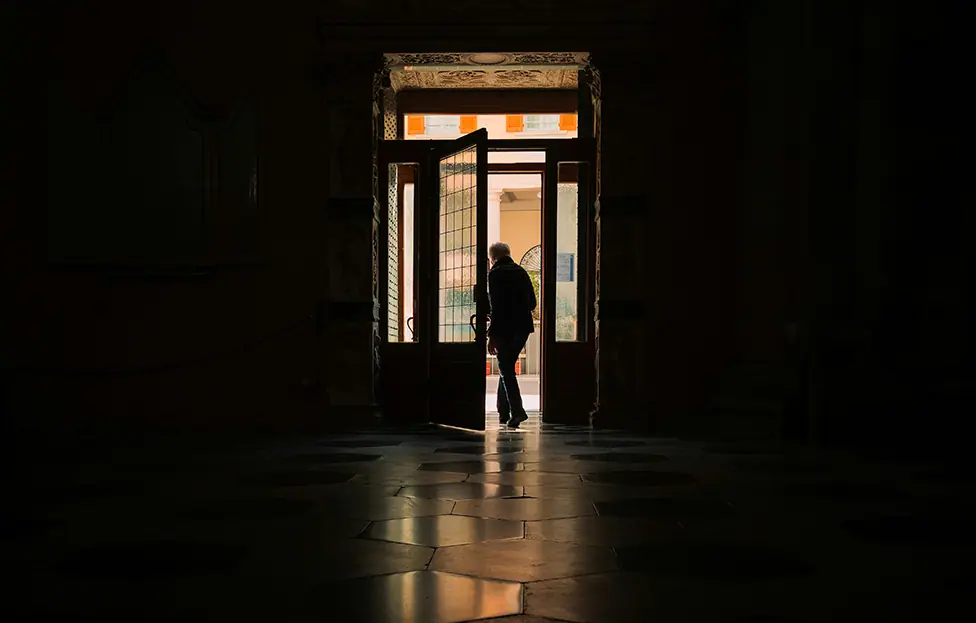Relationships • Breaking Up & Heartbreak
How Heartbreak Ends
Heartbreak is a paradoxical state in which, for a time – very strangely – we take the side of the very person who has hurt us and never wants to be intimate with us again, without quite realising the extent to which we have abandoned ourselves and equated the agent of our agony with goodness.
Instead of immediately turning against our former lover for the devastation they have caused us, for an extended period, we simply miss them with new intensity. We weep with regret for, rather than hate, our tormentor. Instead of celebrating the departure of a miscreant from our lives, we look through old photos and whisper their name with tenderness. We recall every kindness they ever bestowed, we circle obsessively around their best sides, we picture the cosy dinners we once shared with them and the moments when they told us their sorrows and we held them close. With painful illogicality, we miss, and long for reassurance from, precisely the person who actively sought to be rid of us for eternity.
In our efforts to remain loyal to our ex, we have no option but to grow highly imaginative about what might have led to their departure: maybe they didn’t really intend for any of this to happen. It’s all been a very weird mistake. They couldn’t have meant such cruelty. They’d be so sad if they saw us crying. They’d be jealous if they saw us attempting to set up dates with other people. They must have been seized by some temporary, extraneous force that put them into a kind of narcoleptic state from which they will soon wake up. They do love us deep down. They’re just going through some inner troubles and will imminently remember what we mean to them.

Along the way, we hardly notice that they ruined the holidays, destroyed our confidence, upset our health, put an entirely unnecessary toll on our mental state – and didn’t apologise or thank us for our sacrifices. We’re too busy thinking of how sweet they are and how complicated their early life was.
We start to wonder what horrible aspects of us might have provoked our abandonment. Surely we were excessive in our demands. Silly us, for wanting to see them! How clingy, to mind that they were never there! How obsessive, to be jealous about the infidelities!
Of course, these contortions don’t help our self-esteem. How awful we must be, if such a good person decides to quit our company. How could we be of any value, if someone so blameless, who has known us from close up, realises they’ve had enough? We don’t put any of this quite so clearly, but deep down, we don’t want to live very much.
For a long time, these torturing thoughts seem to make all the sense. And then eventually – it might be after five months, or five years (after hours of therapy, a great many conversations with friends and hundreds of long walks in the park) – there is a new dawn. A fresh set of ideas take root. We can hardly imagine why they were ever so hard to believe in, and it’s their opposites that are recast as wholly alien:
— The ex isn’t, in any way, our friend. They consciously and strategically threw us away. Not to put too fine a point on it: they didn’t want us. They had enough of us. They actively sought to spend the rest of their life without us. They wanted to admire, have sex with and adore someone else.
— This isn’t a person whose side we should ever be on again. They may have smiled and said sweet things on their way out the door, but they didn’t fundamentally mean any of it, because in their actions they sought to pulverise and annihilate the world we had constructed with them. They weren’t asleep while they did so. They weren’t drugged. They didn’t mind one bit that we were crying – they just didn’t want to be too close or feel uncomfortable about it.
— This wasn’t a mistake. They wanted it. All of it. They will have plotted for it. They will have talked to their friends ahead of time. This was a strategy, a deliberate intention. What happened was exactly what they wanted (very, very badly) to happen.
— There was someone else. Not necessarily in their bed, but in their fantasies. They didn’t leave us for a blank; they weren’t planning to join a celibate religious order. They were upgrading. They dreamt of a better life. They did this on one basis only: a powerful feeling that they could swap us for a superior candidate.
— This isn’t – of course – someone we should be crying over. This isn’t someone we should, for one moment longer, think of as adorable. This is not our ally. We’re done thinking about someone who opted, in broad daylight, to expel us. It’s not disloyal to try to love someone else; it’s a sign of our new loyalty to ourselves.
Suddenly, the heartbreak makes no sense. We don’t love this person anymore; we want them far away from us. We shudder to recall how much we believed in them. Someone can’t be ‘our person’ – and not want to be with us. We wonder why we didn’t think like this from the beginning. And the answer is because love is very slow to fade. It isn’t built out of logic, but out of the slower, less viscous moods of the heart. We’re like a loyal dog who kept returning for another slap from a volatile owner, unable to believe that they were being mistreated by someone who was once very kind. It took a long time, and many hits – but this dog has learnt. This dog isn’t going to play the game any more. After a while, even the most loyal animal gets the message and moves on. We don’t love them anymore; and we’re free.


























